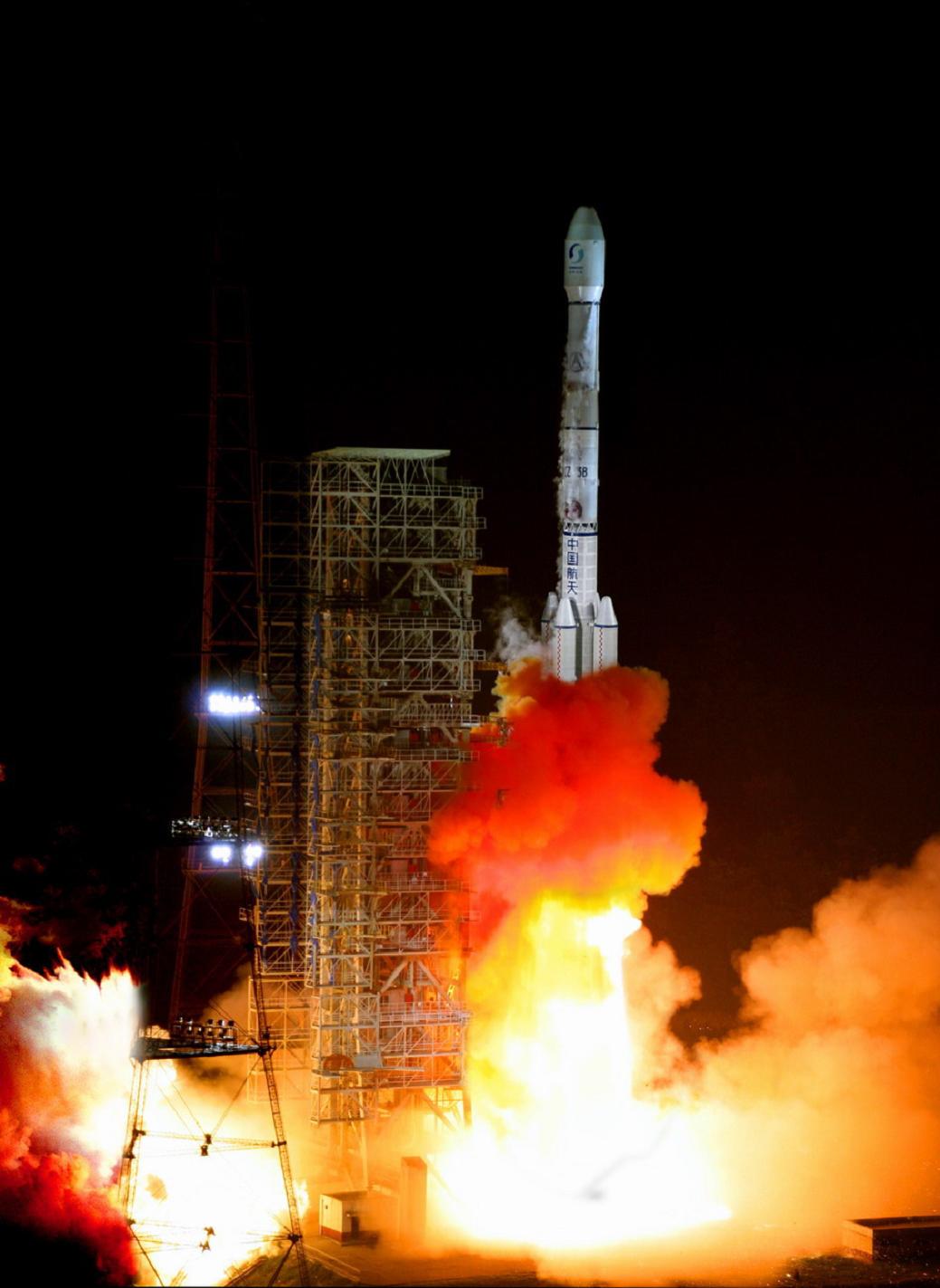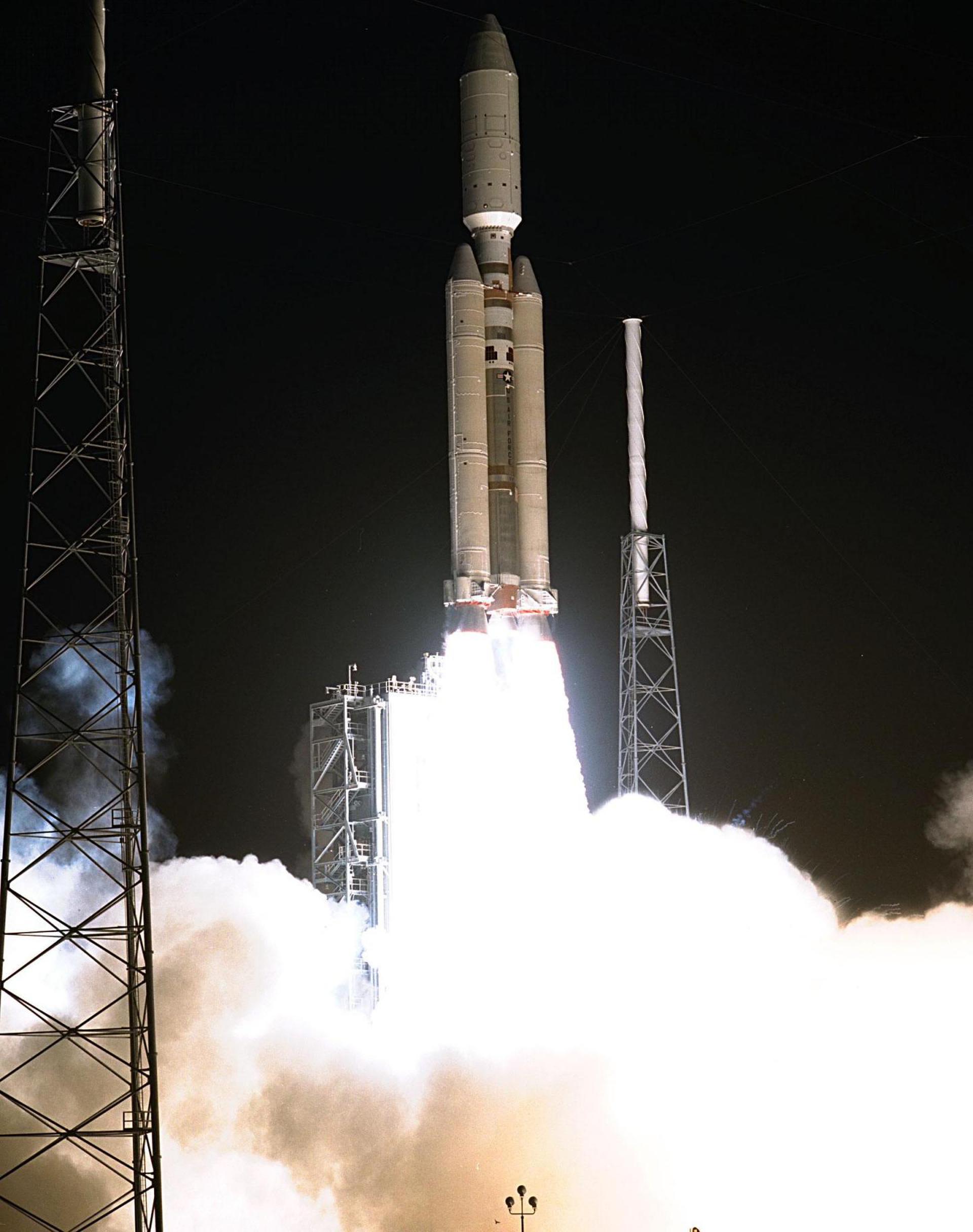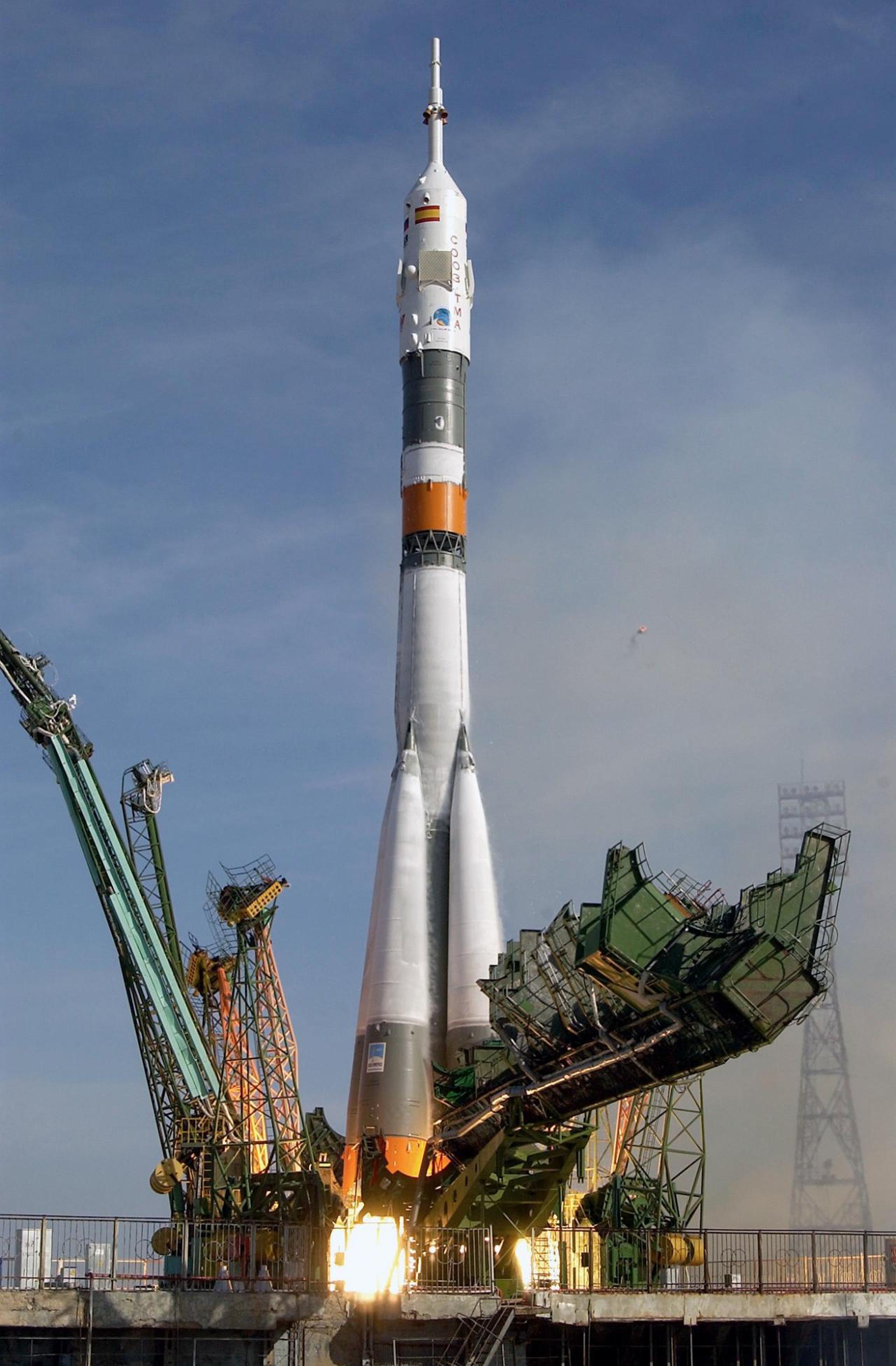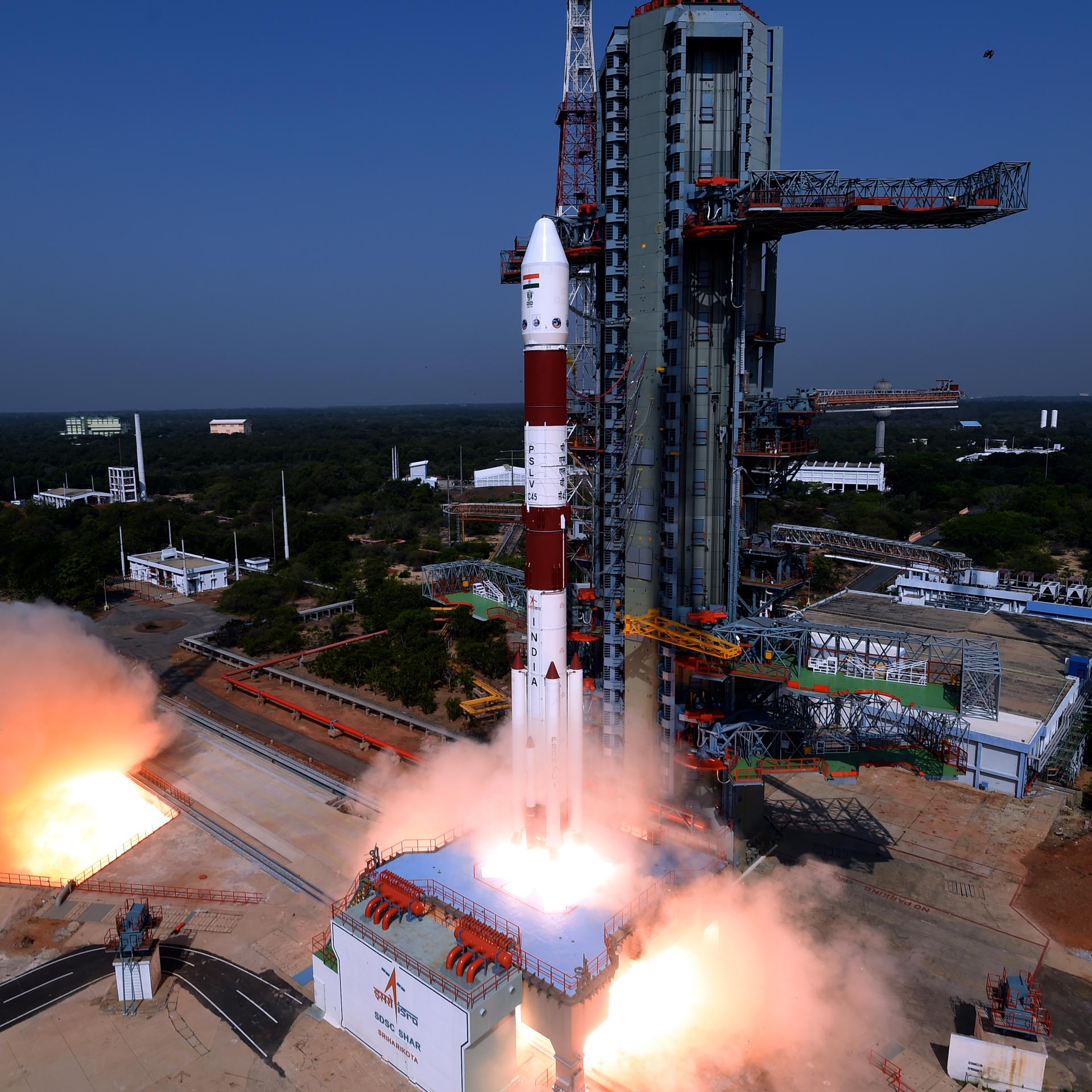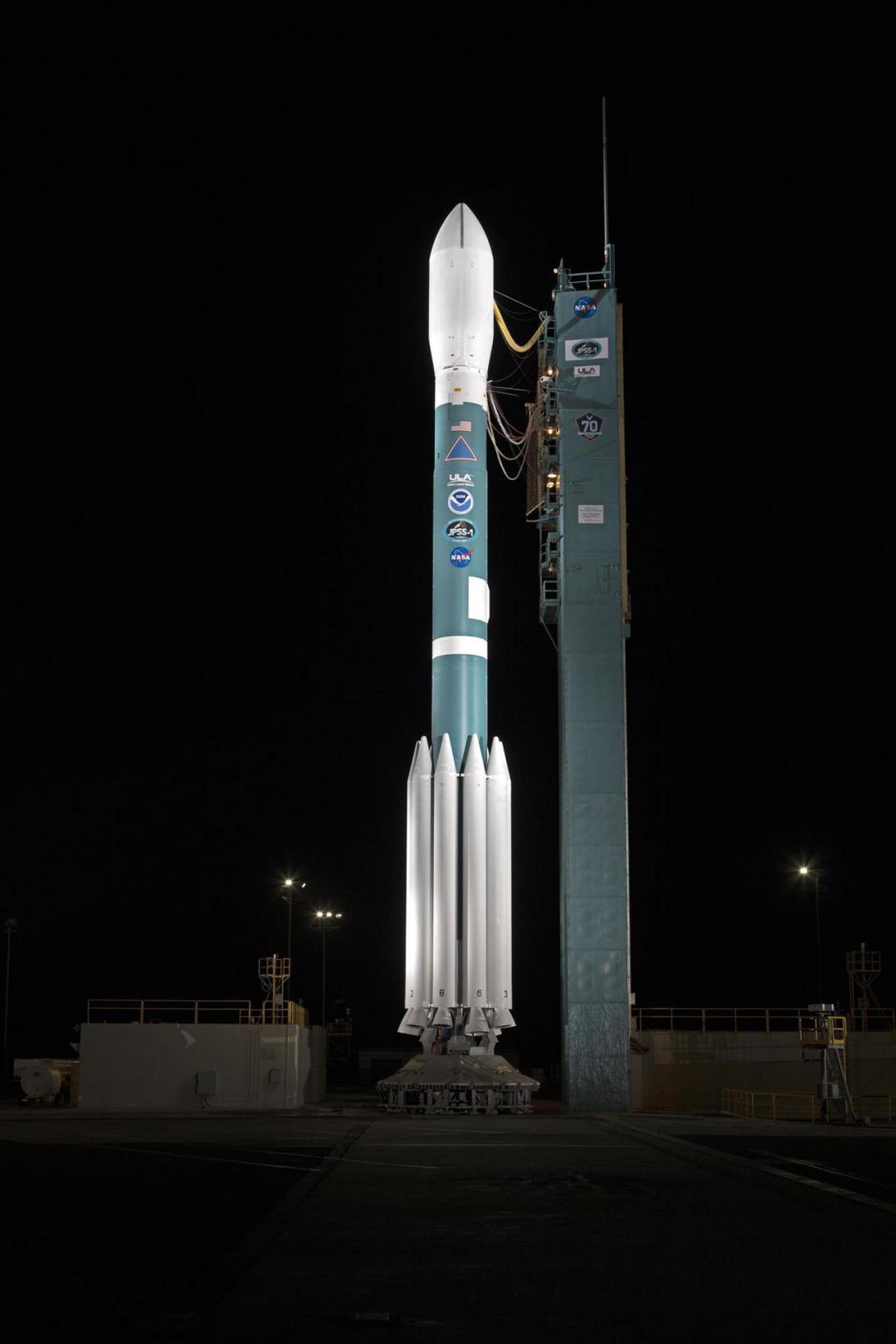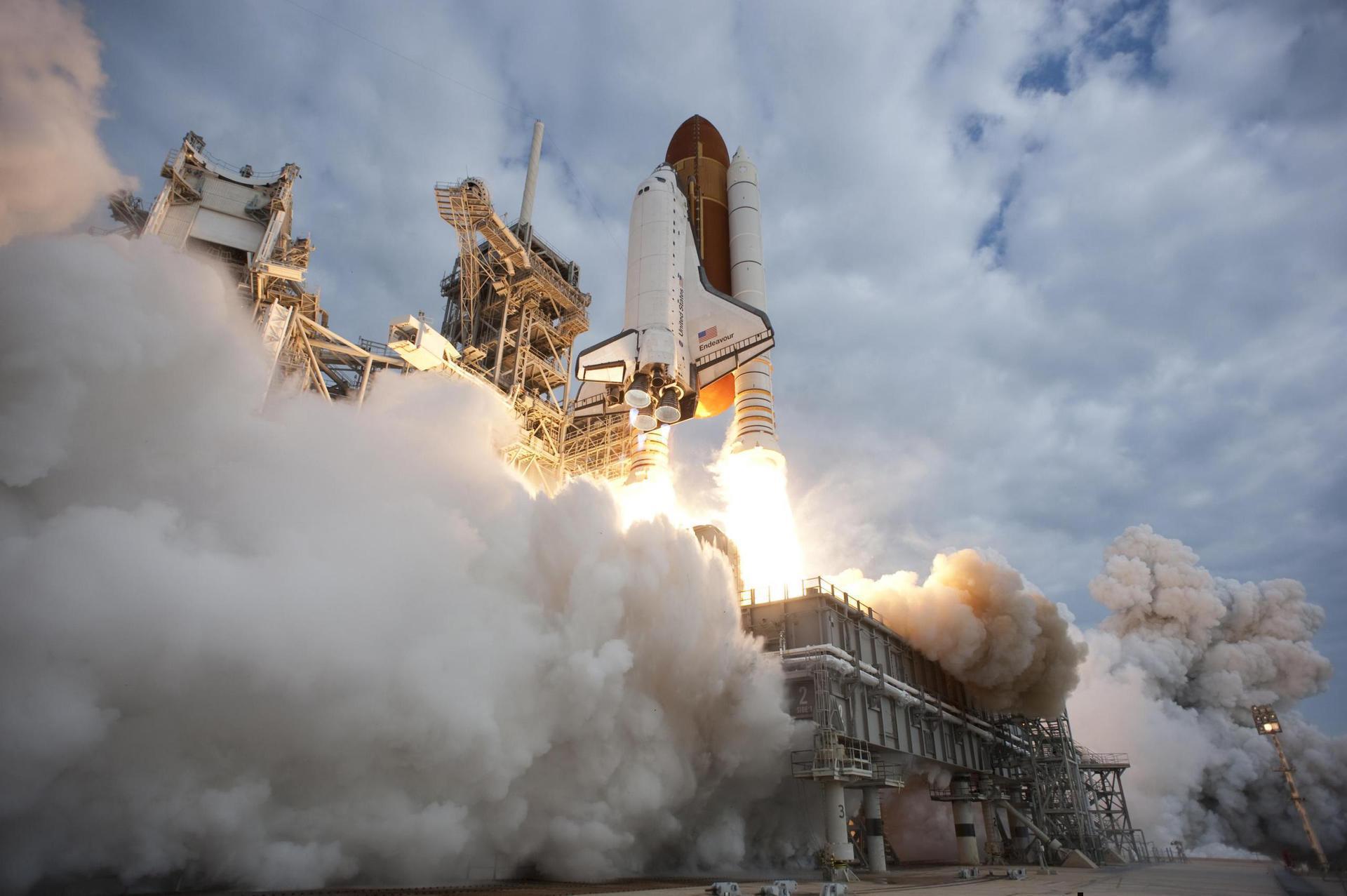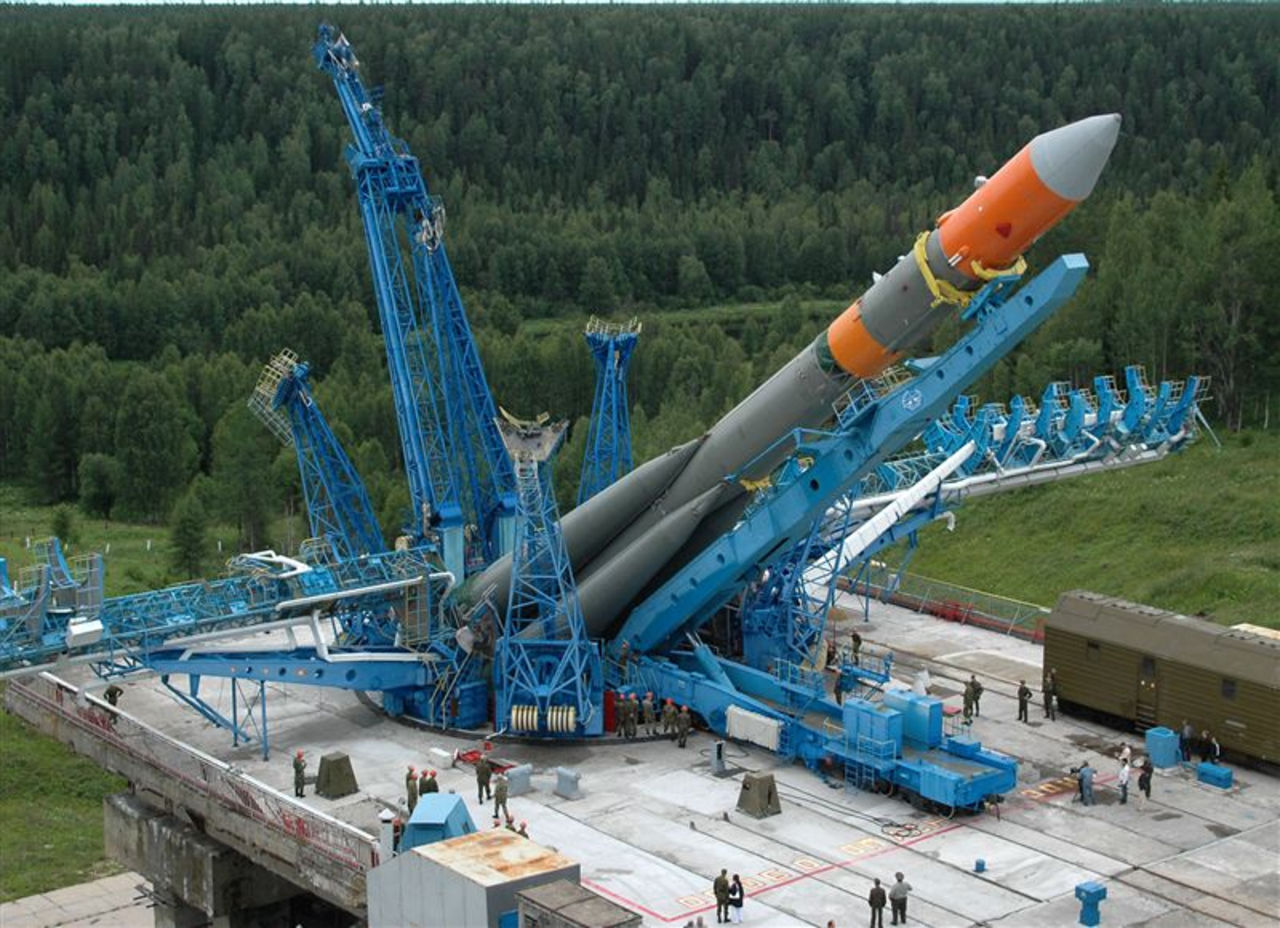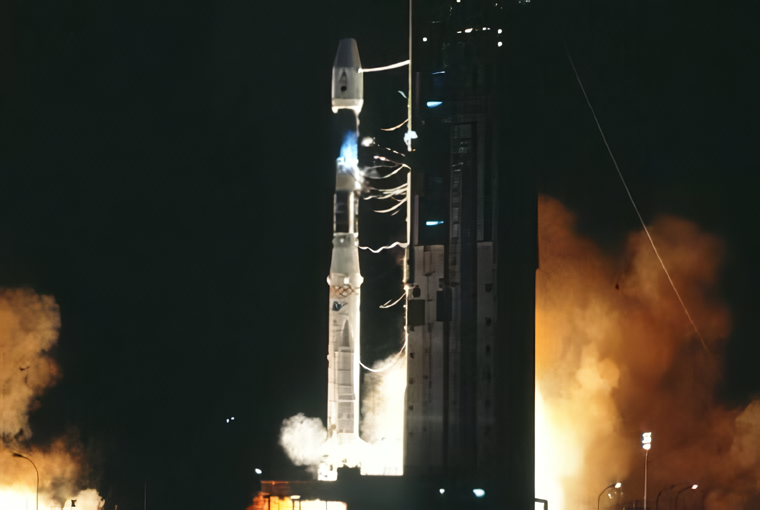Previous Spaceflight Launches
Filter by Agency, Locations or Vehicles
Show All LaunchesLong March 3B | Apstar 2R
China Aerospace Science and Technology Corporation | ChinaXichang Satellite Launch Center, People's Republic of China
Oct. 16, 1997, 7:13 p.m.
Status: Launch Successful
Mission:
Space Systems/Loral's (SS/L) Apstar-2R is one of the most powerful spacecraft in Asia-Pacific service. Launched in China in 1997 by APT Satellite Company, Ltd., the satellite offers regional voice, video, and data services to an area large enough to link Europe, Russia, the Middle East, Africa, and the Asia-Pacific region into a broad telecommunications network.
Geostationary OrbitTitan IVB/Centaur | Cassini-Huygens
Lockheed Martin | United States of AmericaCape Canaveral SFS, FL, USA
Oct. 15, 1997, 8:43 a.m.
Soyuz U | Foton 11 & Mirka
Russian Federal Space Agency (ROSCOSMOS) | RussiaPlesetsk Cosmodrome, Russian Federation
Oct. 9, 1997, 5:59 p.m.
Atlas IIAS | Echostar III
Lockheed Martin | United States of AmericaCape Canaveral SFS, FL, USA
Oct. 5, 1997, 9:01 p.m.
Status: Launch Successful
Mission:
EchoStar 3 was originaly ordered as DBSC 1 by DBSC (Direct Broadcast Satellite Corporation) which merged with a subsidiary of EchoStar in late 1995. The merger was approved by the FCC in August 1996. EchoStar is only authorized to operate 11 transponders from 61.5°W but was granted in Mar 1998 a special authorization to use the full frequency space at that location.
Geostationary OrbitSoyuz U | Progress M-36
Russian Federal Space Agency (ROSCOSMOS) | RussiaBaikonur Cosmodrome, Republic of Kazakhstan
Oct. 5, 1997, 3:08 p.m.
PSLV | IRS-1D
Indian Space Research Organization | IndiaSatish Dhawan Space Centre, India
Sept. 29, 1997, 4:47 a.m.
Status: Launch Failure
Mission:
IRS 1C and 1D (Indian Remote Sensing Satellite) were the second version of the series of indigenous state-of-art remote sensing satellites. Skipper was an international project initiated by BMDO to measure the bow-shock UV emissions from reentering bodies at different speeds and heights.
Low Earth OrbitDelta II | Iridium 34 to 37 & 19
United Launch Alliance | United States of AmericaVandenberg SFB, CA, USA
Sept. 27, 1997, 1:23 a.m.
Status: Launch Successful
Mission:
Iridium provides global mobile telecommunications services using a constellation of 66 low earth orbit satellites in a 86.4° inclined orbit. Although 77 satellites were originally envisioned for the system and spawned the name based on the 77th element in the periodic table, the system has been scaled back. Motorola's Satellite Communications Group designed and manufactured the Iridium satellites with Lockheed Martin providing the LM-700A spacecraft buses.
Low Earth OrbitSpace Shuttle Atlantis / OV-104 | STS-86
National Aeronautics and Space Administration | United States of AmericaKennedy Space Center, FL, USA
Sept. 26, 1997, 2:34 a.m.
Molniya-M | Molniya-1T 90
Russian Space Forces | RussiaPlesetsk Cosmodrome, Russian Federation
Sept. 24, 1997, 9:30 p.m.
Ariane 42L | INTELSAT 803
Aérospatiale | FranceGuiana Space Centre, French Guiana
Sept. 23, 1997, 11:58 p.m.
Status: Launch Successful
Mission:
The Intelsat VIII-VIII/A series has been designed to meet the needs of Intelsat users throughout the system for improved C-band coverage and service. These spacecraft will incorporate six-fold C-band frequency reuse, two-fold frequency reuse of expanded C-band capacity, and the highest C-band power level ever for an Intelsat satellite. Consequently, Intelsat VIII will provide significantly more C-band capacity for public switched telephony and Intelsat Business Service, better quality for video services, and encourage new international VSAT applications.
Geostationary Orbit